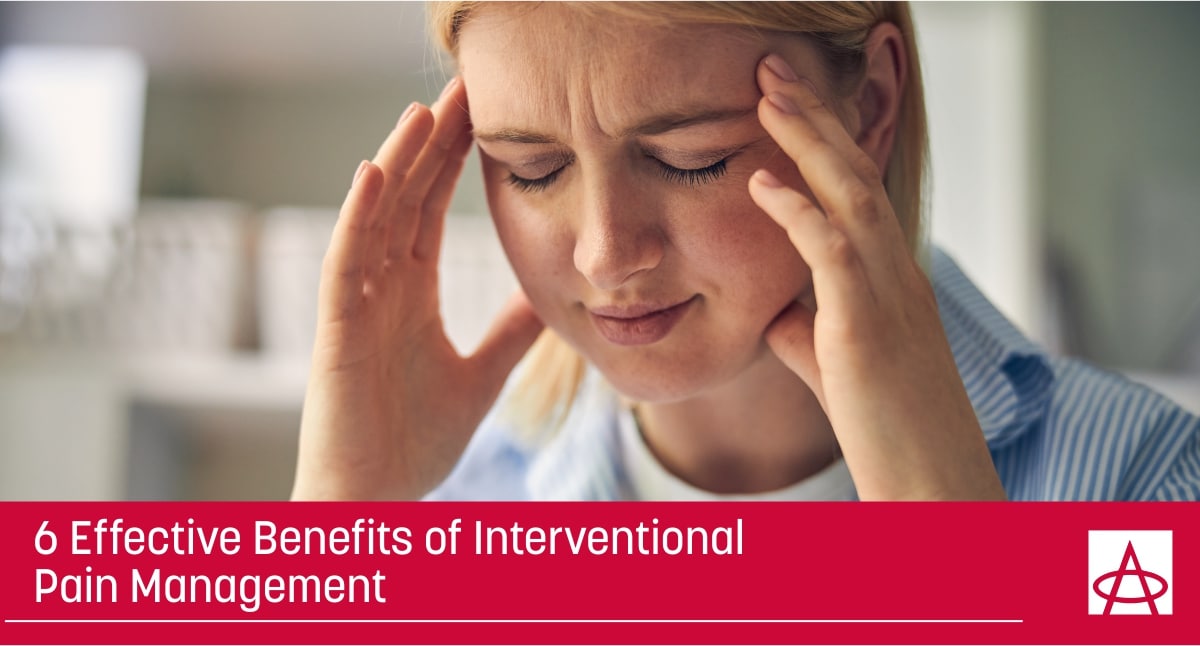TREATING CHRONIC PAIN CAN BE DONE COMPASSIONATELY – CHECK OUT SHARON’S STORY
By Sharon Black The majority of Americans live with some sort of pain, back pain being the most common. When I met Sharon, she was one of the many Americans that suffers daily with pain in her lower back and knees. It affected her mobility and her day-to-day activities significantly. Upon my first assessment, Sharon was suffering from pain due to her facet joints, the joints that run along the back of her spine. I confirmed my first assumption was correct after I did x-ray guided nerve block injections which demonstrated that her facet joints were, in fact, the source of her
Pain Management After Surgery: Do’s and Don’ts
You undertook surgery to manage pain effectively. While the reason for the pain may vary, one thing that’s crucial to your recovery now is post-surgical pain control. Pain control after surgery should be a primary focus for both you and your physician. At Advanced Pain Care, we want our patients to experience a better quality of life after a surgical procedure. So, we take post-surgery pain management seriously. The better your pain is controlled, the more you will be able to engage in daily activities effectively. So, before you head back home, we’ll provide you with all the necessary instructions about
Addictionology: The Science of Addiction
By Rey Ximenes, M.D. An addiction is a chronic disease. It is considered a chronic relapsing brain disease where the brain, particularly the pleasure/survival center, is being hijacked to consider the addiction or addictive behavior integral to your very own survival. This area of your brain is responsible for your “fight or flight” response. Addictive substances and/or behavior, such as sex, gambling, or over eating, stimulates that area of the brain and can increase dopamine sent to your brain receptors. These substances can actually stimulate this area of your brain as much as 1800% more than your usual behaviors necessary for
When is Your Hip Pain a Serious Issue?
Have you ever wondered if your hips are healthy or not? If they feel fine, it's highly likely that they wouldn't cross your mind. On the other hand, when experiencing pain in the hip joint, getting rid of it might be your only concern throughout the day. As pain specialists, we at Advanced Pain Care regularly see patients looking for lasting hip pain relief. Men and women of all ages feel hip pain due to a variety of reasons like arthritis, pinched nerves, or fractures. Depending upon the cause, you will feel a stiffness in this area. Apart from that, it
Does Fibromyalgia Weaken Your Immune System?
Do you experience chronic pain? Well, you're definitely not alone. Count yourself among the 50 million U.S residents (1) who endure persistent pain. Deep muscle pain, painful tender points, and unending back and neck aches are all symptoms of fibromyalgia. The pain occurs because the condition impacts your muscles and tissues, leading to widespread chronic pain and tenderness. For those seeking relief, finding help surely feels like a challenge. We at Advanced Pain Care have been helping patients dealing with this condition for many years now. We understand fibromyalgia and assist you in managing it effectively. We use a multipronged fibromyalgia
Strategies For Natural Pain Relief and Knowing When It’s Time to See a Doctor
By Brad Culling, D.O. When I talk to my patients about their acute pain, I encourage them to seek out natural remedies and strategies first. These can be very effective for tackling and managing your pain so that it lowers your need to see a doctor. Of course, if your pain is prolonged and persistent, affecting your quality of life, then it may be time to seek medical help. This is any chronic pain that persists longer than 6-8 weeks and no other remedies are working to affect your pain. At that point, see your doctor and they can help you
Which Doctor Should You Visit for Intense Wrist Pain?
A report by the National Center for Biotechnology Information, states that hand and wrist injuries account for 11 to 20% of emergency room visits in the United States[1]. These could range from wrist sprains and dislocations to carpal tunnel syndrome, mallet finger, or arthritis. Most of these injuries are work-related, or due to jobs that need the individual to be constantly at a computer. If you are experiencing severe wrist pain, it could be any one of these reasons. The musculoskeletal and nervous system in the region is highly integrated. So finding the right cause is not always easy unless you
Does Stress Cause Chronic Neck Pain? How Relaxation Strategies Can Help You Keep Pain At Bay
By Advanced Pain Care Stress can certainly cause or even exacerbate chronic neck pain. When you experience stress, whether a chronic stress disorder, or bouts of anxiety, or depression, your body will trigger the sympathetic nervous system. The sympathetic nervous system is responsible for your “fight or flight” response. This response, when triggered, will produce and release an increase in cortisol and adrenaline hormones. Elevations in cortisol, particularly, can lead to a loss in muscle mass and an increase in fat accumulation. In moments of threat, your body’s stress response is a helpful reaction because it can help you either fight
6 Effective Benefits of Interventional Pain Management
Chronic pain isn't always visible and apparent to the outside world. However, dealing with it is nothing short of exhausting. Even the smallest everyday tasks require monumental effort. So, the pain is not only physically draining but also mentally draining. We know about countless chronic pain patients who, before coming to our interventional pain clinic, only found themselves being tossed back and forth between primary care physicians and therapists of all kinds. Tired of dealing with pain, their ability to remain optimistic dwindled with every passing day. Shortly after we utilized the multi-disciplinary interventional pain management approach, we witnessed a striking
What Triggers Migraines and How Can You Manage Them?
By Advanced Pain Care If you’ve been experiencing migraines more than usual lately, you’re not alone. Seasonal changes (yes, even here in mild and pleasant Texas) are one of the many triggers of this impairing head pain. What makes migraines different from regular headaches is the associated symptoms that go along with them. If other ailments like nausea, sensitivity to lights or noise, or dizziness accompany your throbbing head, there’s a good chance you’re suffering from a migraine. The good news is that there are lifestyle changes you can make to reduce the chances of encountering this unpleasant affair. What Does a











